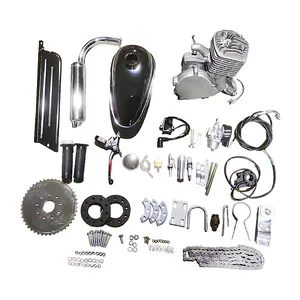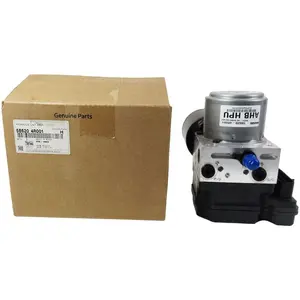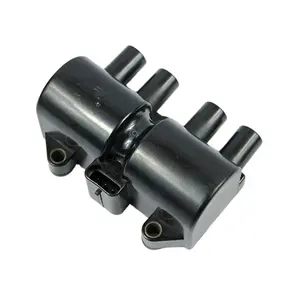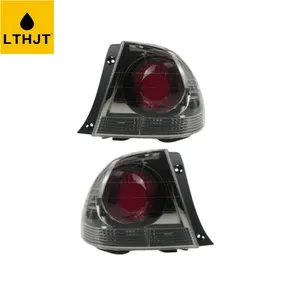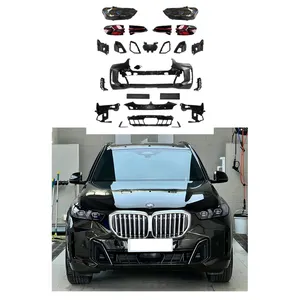Populair in uw branche






Verkopen Als Warme Broodjes Vervanging Dewalt 18V Batterij Li Ion Compatibel Dcb107 Dcb115 Dcb118 20V Dwalt Batterij 4ah 5ah 6ah
€ 14,38 - € 23,65
Min. bestelling: 5 stukken







Tefoo Gs2054dh Vervanging 14.4V/3.3ah 4S 1P Lithium Batterij Pack Voor Rrc2054 Voor Vervanging Digitale Meter Batterij
€ 52,03 - € 89,83
Min. bestelling: 1 stuk







I-SWAY Hoge Kwaliteit 36V 48V 72V 50ah 105ah 150ah 210ah Lithium Ion Batterij Golfkar Batterij Lifepo4 Batterij
€ 635,12 - € 857,65
Min. bestelling: 2 stukken
Verzending per stuk: € 3.152,42







Tefoo Gs2040im Medische Batterij Voor Ni2040hd MTS-6000 Li204sx Viavi Jdsu Otdr Slimme Standaard Batterij Met Smbus
€ 75,92 - € 125,06
Min. bestelling: 2 stukken







Linde Nichiyu Pzs Clark Vorkheftruck Accu Voor Heftruck Elektrische 80V 36V 48V Vorkheftruck Batterij 48V 36V 24V 80V 600ah
€ 509,95 - € 1.205,34
Min. bestelling: 2 stukken







Ennopol BB-2791/U-SMBUS Slimme Radio Batterij Voor PRC-80 PRC-2200 PRC-730 15.0 Ah 14.4V 7.5a Vervanging Voor TNC-2188 BA-3791
€ 184,51 - € 369,95
Min. bestelling: 1 stuk



Niet-Oplaadbare Droge Alkaline Batterij BA-3791 Vervanging Voor TNC-2188
€ 14,65 - € 27,82
Min. bestelling: 10 stukken
Topcategorieën
Over tnc de batterij van de batterij
Koop tnc de batterij van de batterij. van Alibaba.com wanneer u een grote verscheidenheid aan merken en modellen in een productiefabriek nodig heeft. Monteurs vinden ze handig om in te slaan voor het geval een klant een vervangende klus nodig heeft. Installeer tnc de batterij van de batterij. om ervoor te zorgen dat het voertuig correct kan starten om in beweging te komen. Elk apparaat zal ook basiselektronica zoals de radio of verlichting aandrijven terwijl de truck rijdt.
De meeste tnc de batterij van de batterij. zijn verkrijgbaar in loodzuurontwerpen met een hoge energie-output. Het loodgehalte wordt meestal getest om een hoge zuiverheid en uitzonderlijke kwaliteit te garanderen. Veel units zijn compatibel met de motor in een standaard pick-up en sommige passen in een semi of een camper. Anderen zijn gebouwd om geschikt te zijn voor bussen en zelfs voor waterscooters zoals speedboten. Bepaalde verzegelde modellen hebben geen onderhoud nodig, wat tijd en geld bespaart.
Ontvang tnc de batterij van de batterij. van veel verschillende leveranciers op Alibaba.com en kies uit kwaliteitsmodellen tegen concurrerende prijzen. Zoek naar de spanning en laadcapaciteit die het beste werken voor het beoogde project. Velen zijn ontworpen om zelfs bij extreme temperaturen te kunnen worden gebruikt. Installeer er een en vertrouw erop dat de motor zal starten op een warme dag of bij zeer koud weer.
Met tnc de batterij van de batterij. op Alibaba.com gaan geld besparen en toch het vinden van hoogwaardige onderdelen hand in hand. Koop een zwaar model en ga direct aan de slag met het bouwen of repareren van de truck. Ontvang bulkbestellingen van eenheden die eenvoudig te installeren en te onderhouden zijn om de kosten en de behoefte aan extra mankracht te helpen verlagen.
De meeste tnc de batterij van de batterij. zijn verkrijgbaar in loodzuurontwerpen met een hoge energie-output. Het loodgehalte wordt meestal getest om een hoge zuiverheid en uitzonderlijke kwaliteit te garanderen. Veel units zijn compatibel met de motor in een standaard pick-up en sommige passen in een semi of een camper. Anderen zijn gebouwd om geschikt te zijn voor bussen en zelfs voor waterscooters zoals speedboten. Bepaalde verzegelde modellen hebben geen onderhoud nodig, wat tijd en geld bespaart.
Ontvang tnc de batterij van de batterij. van veel verschillende leveranciers op Alibaba.com en kies uit kwaliteitsmodellen tegen concurrerende prijzen. Zoek naar de spanning en laadcapaciteit die het beste werken voor het beoogde project. Velen zijn ontworpen om zelfs bij extreme temperaturen te kunnen worden gebruikt. Installeer er een en vertrouw erop dat de motor zal starten op een warme dag of bij zeer koud weer.
Met tnc de batterij van de batterij. op Alibaba.com gaan geld besparen en toch het vinden van hoogwaardige onderdelen hand in hand. Koop een zwaar model en ga direct aan de slag met het bouwen of repareren van de truck. Ontvang bulkbestellingen van eenheden die eenvoudig te installeren en te onderhouden zijn om de kosten en de behoefte aan extra mankracht te helpen verlagen.
